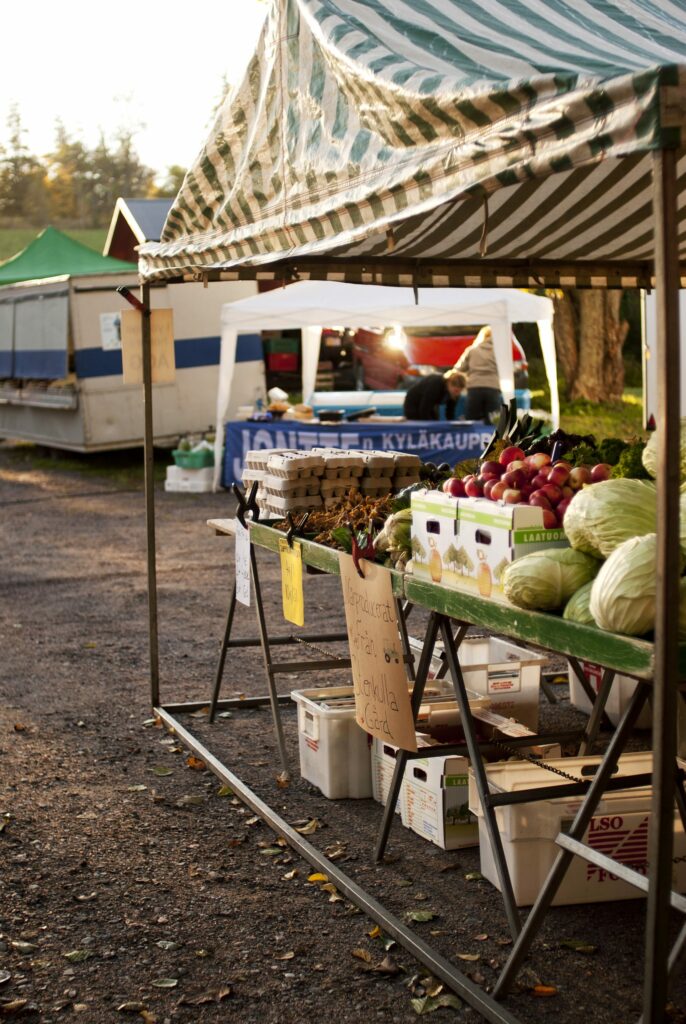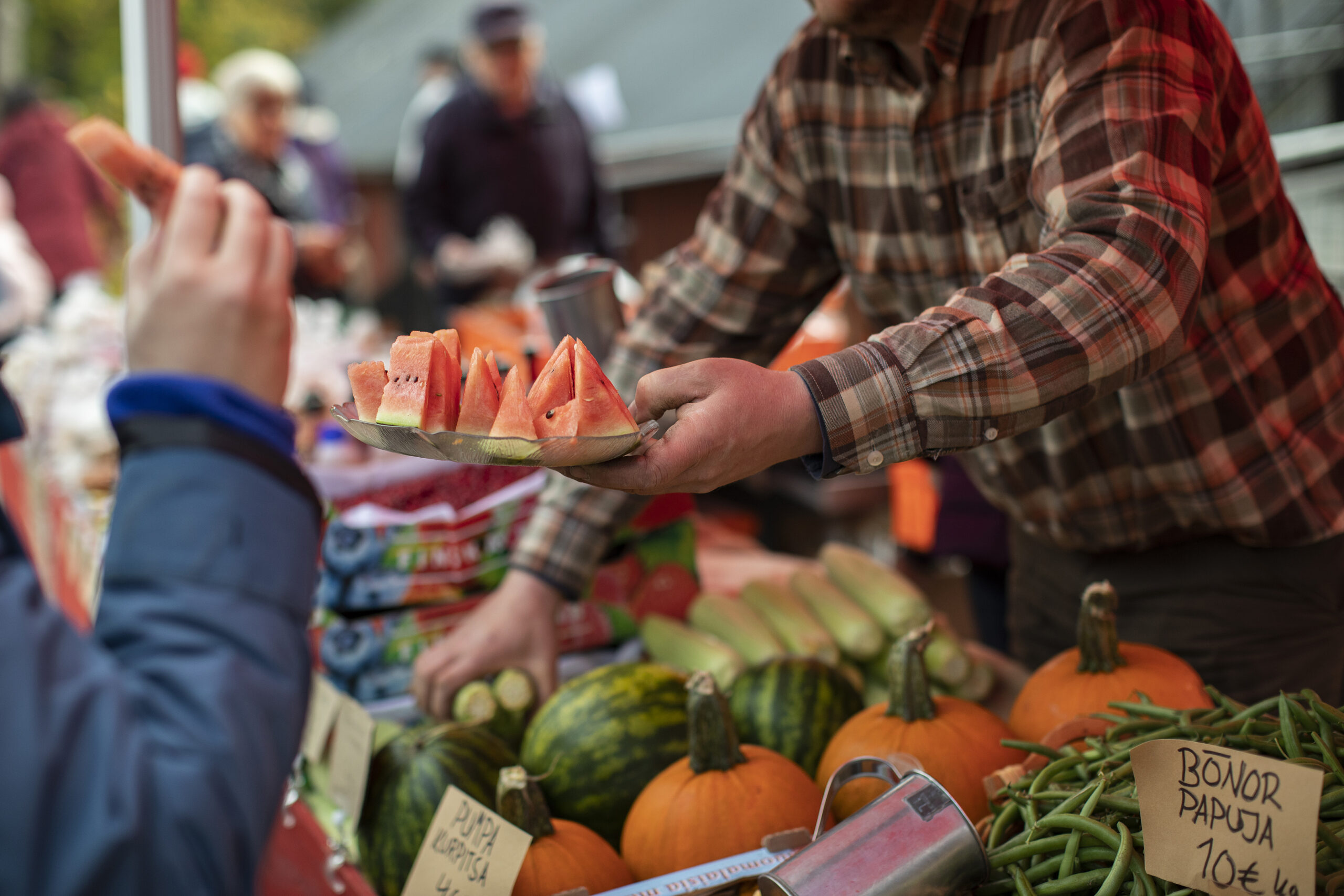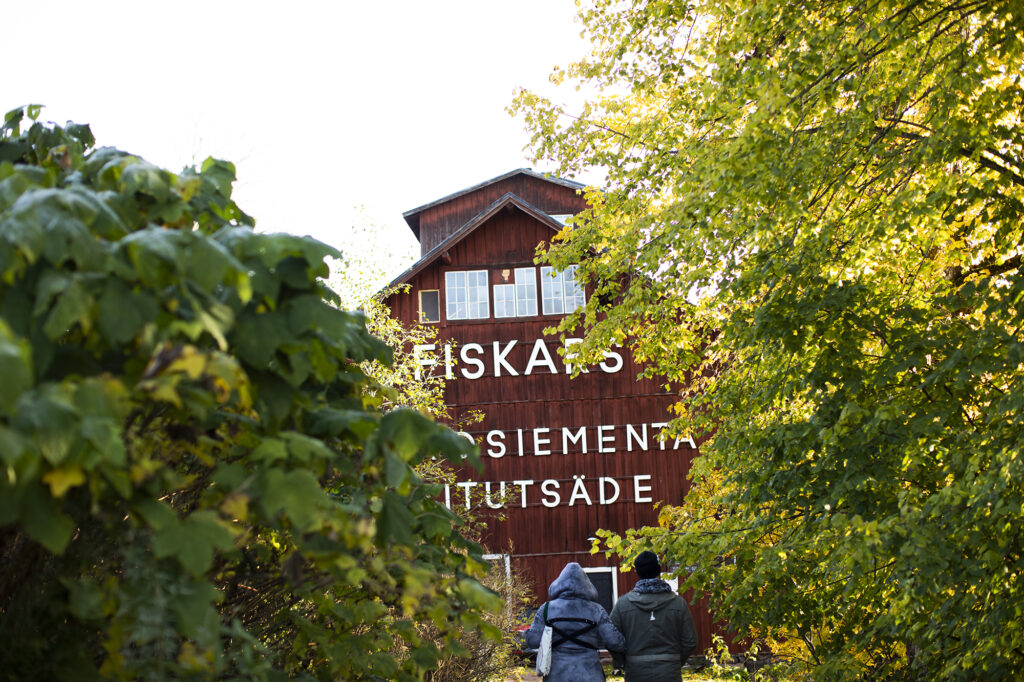
Slow Food Festival 2024
Threshing House, Fiskars
5–6 October, 10am–4pm
Better Soil, Better Food
Slow Food Festival features autumn harvest, local flavors, and food crafts from Uusimaa and Southwest Finland. At the festival, you can taste, stock your pantry, meet food producers, attend lectures on food culture, have lunch in the Slow Food Court, and stroll around the Fiskars Village.
The Slow Food Festival will be held in 2024 for the 13th time, attracting thousands of visitors every year. Follow the news feed (mostly in Swedish and Finnish) and our social channels for updates on the festival, the program, and the vendors.
Admission Fee
€2 per person
Parking: €5, includes 1 admission fee
Children up to 18 years old: Free
Do you want to sell your products at the festival? Read more here!

Info about the festival
The Program
The Program for Slow Food Festival 2024 will be published soon.
Exhibitors
Following exhibitors will participate during Slow Food Festival 2024 (updated continuously):
Bakgården: Sourdough spelt bread, rye bread, oat bread, and buns made with goat’s milk.
Billnäs Chocolate Factory: Chocolate.
Finlands svenska Marthaförbund: Consultation, distribution of food culture magazines.
Heli’s Highland: Highland Cattle meat and meat products.
Keskylän tila: Handcrafted juice and glogg concentrates, as well as jams, made from the farm’s organic berries and fruits. A wide selection of unsweetened products.
Kiploks: Local garlic.
Linnan marenki: Meringues, cakes, raw cakes, lemon curd, cherry jam, juices, seed crackers.
Loimukeisari: Flame grilled salmon and salmon roulades.
Magnus Lignell: Fish products
Mersmak: Products made from berries and vegetables according to artisanal principles.
Raaseporin hunaja: Honey honey products, beeswax candles.
Raseborgs fermenteri: Fermented products.
Ronny Avellan: Potatoes, apples, jams.
Tumpin savukala: Smoked fish, dishes with smoked fish, potato salad, sauce, and the salad of the season.
Queen Kombucha: Kombucha.
Walee Thaifood: Foodtruck

Food producers from all over Uusimaa and Southwest Finland
We ensure that the food sold at the festival is processed in Uusimaa or Southwest Finland and/or that the raw material is produced in the region. The products sold during the festival also have clear descriptions of ingredients, production methods, and cultivation methods.

A sustainable festival
Sustainability issues in food production are at the heart of the festival. We want to provoke thought and discussion about how our food and consumption habits affect the world around us. That’s why we avoid plastic and disposable materials that pollute the environment as much as possible. We also encourage everyone to sort their rubbish during the festival.
Fiskars Village
Just over an hour west of Helsinki, in the heart of Raasepori, you will find Fiskars Village. The old iron works village was founded in the 17th century and is now known as a center for local food experiences, design, and art. You will find restaurants, cafés, shops, hotels, a playground, and much more in the unique environment.
